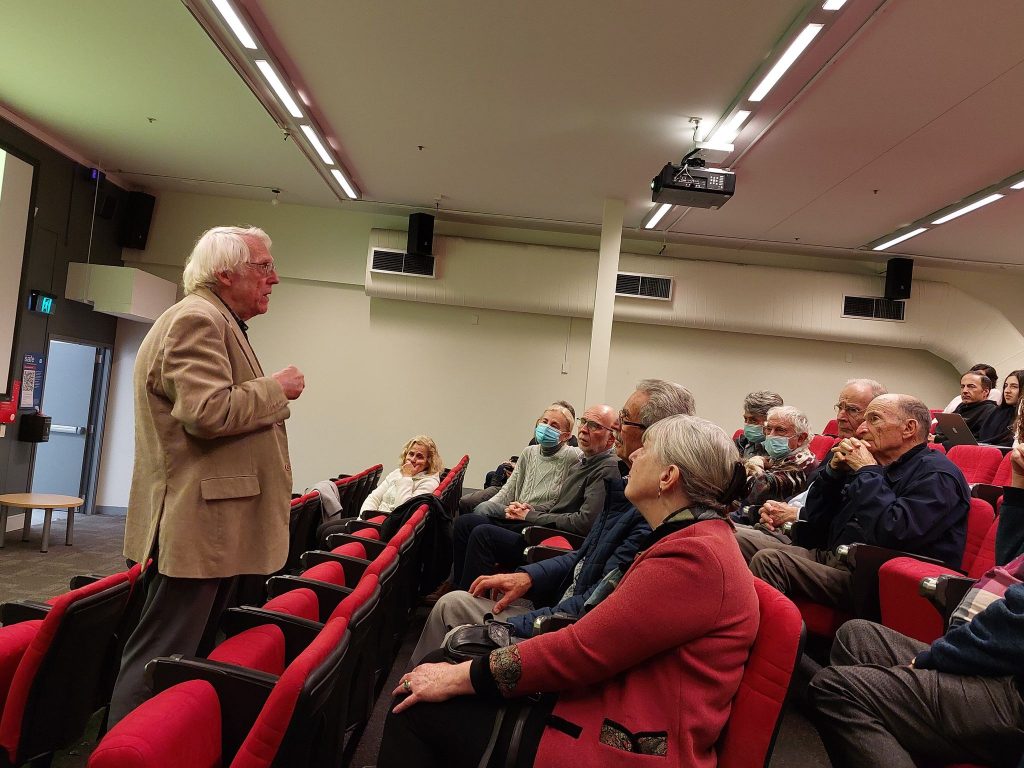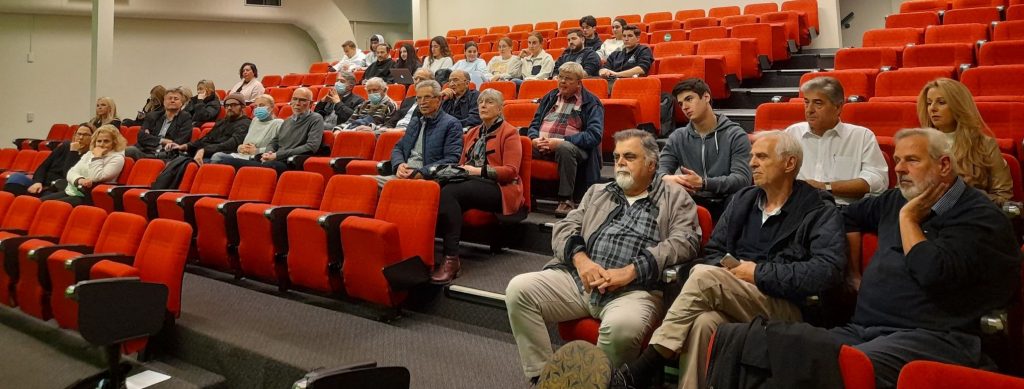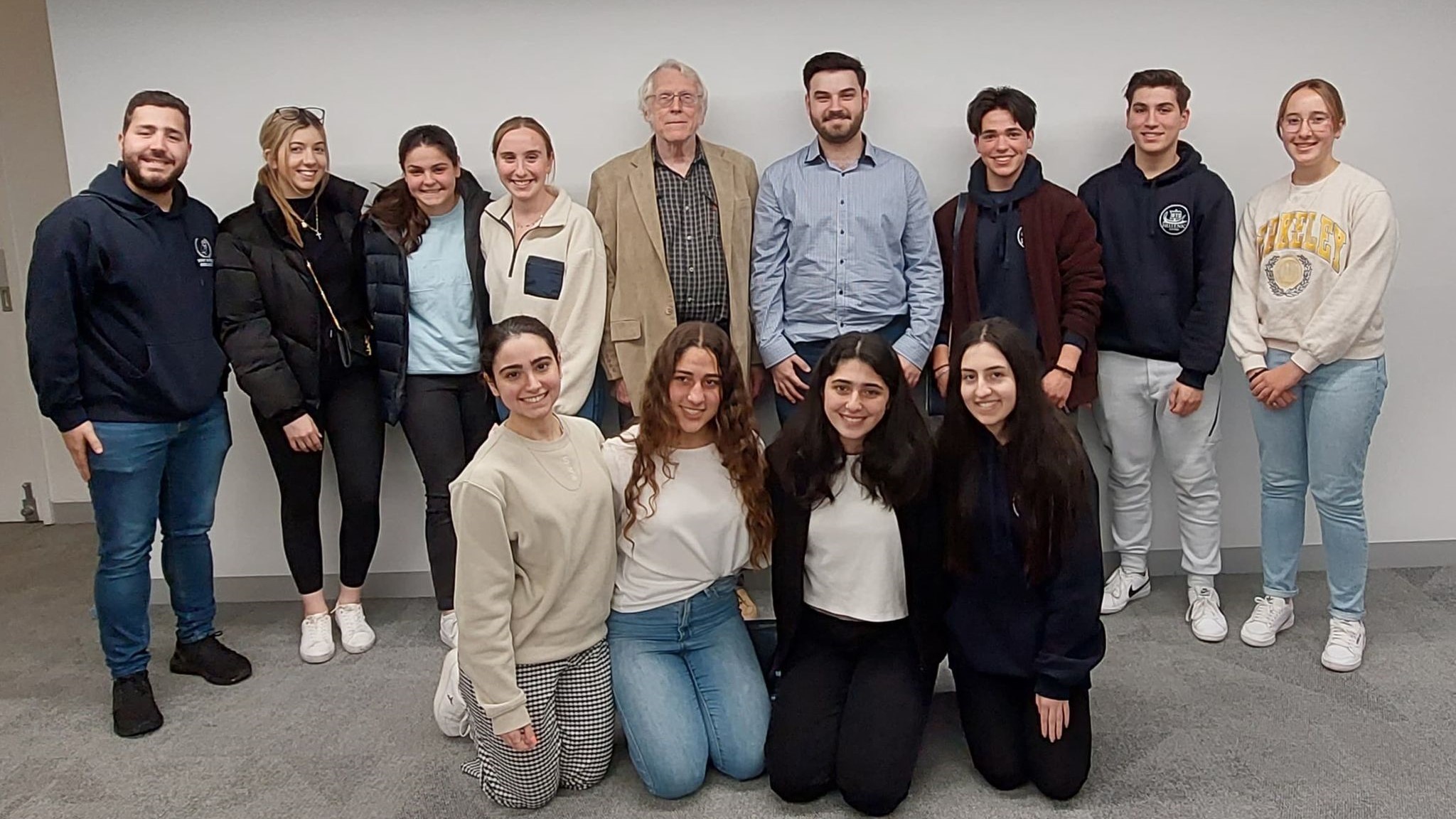The cuisines of the Mediterranean lands, and of Greece in particular, was the topic of a talk given by Dr Alfred Vincent at an event organised by the Hellenic Society of the University of Technology Sydney (UTS Hellenic).
The event took place at the University’s Ultimo campus on Thursday, August 18 and attracted students, members of the education community, representatives of Greek Australian organisations and people from the community at large.
The title of the talk was How traditional is the ‘Mediterranean Cuisine’? Food and drink in the Greek lands before the 20th century.
Dr Vincent reminded attendees that “before the advent of refrigeration and rapid, economical transport, food cultures in Greece and elsewhere depended much more than nowadays on local ecosystems.”

He highlighted the fact that “in the Mediterranean region, despite the great differences between local cuisines, some common features have been provided by three basic types of plant cultivated in the area: the olive, the grape vine, and grains such as wheat and barley.”
“All of these have been characteristic of Greek food culture from ancient times to the present day,” Dr Vincent added.
Nevertheless, Dr Vincent emphasised that “some foods, such as potatoes and tomatoes, which we might regard as fundamental to the Greek cuisine, are actually quite recent additions, and were little known before the Revolution of 1821.”
Dr Vincent concluded with the highlight that “this may remind us of the fact that cultural traditions are not fixed in stone, but continually evolve, as people respond to changing situations and new possibilities.”

It should be noted that Dr Vincent, who taught Modern Greek studies for 25 years at the University of Sydney, continues in retirement to research on the society and culture of the Greek world. His publications include an annotated edition of the memoirs of Tzouanes (Ioannis) Papadopoulos (1618-c.1700), which contain a wealth of information on food and drink.
UTS Hellenic President, Dimitri Kallos, welcomed the attendees, saying that the society is seeking to enhance its involvement with initiatives related to Greek culture and traditions and, at the same time, boost its connections with the Greek Australian community and the wider Australian society.
Among the attendees were Associate Professor Anthony Dracopoulos and other educators; Ms Artemis Theodoris, President of the Afternoon and Saturday Schools of the Greek Orthodox Community of NSW; Dr Michael Kotis, President of the Greek Atlas League; Ms Barbara Zantiotis, President of Kytherian Association of Australia; Mr Kosta Plegas, President of the Sydney University Greek Society; representatives from the Hellenic Society of the University of NSW; members of the committee of UTS Hellenic; and members of the Greek language media.

